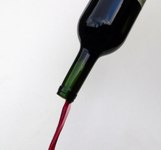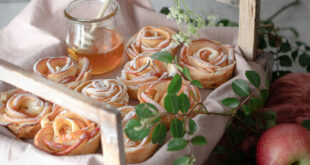 Winter is here and every conversation, no matter how short, seems to include a reference to “that weather”. As we cope with the chilly evenings, our heaters and wood burners working overtime, our entertaining takes on another face. No longer are we as tempted by the array of great restaurants around New Zealand – we are now more prone to entertain “a la casa”, at home.
Winter is here and every conversation, no matter how short, seems to include a reference to “that weather”. As we cope with the chilly evenings, our heaters and wood burners working overtime, our entertaining takes on another face. No longer are we as tempted by the array of great restaurants around New Zealand – we are now more prone to entertain “a la casa”, at home.
I celebrated mid-winter Christmas with a dinner at friends Julia and Kathy’s home. The chilly night blew me into a well-heated, cosy home. The open fire was roaring and the aroma of roast venison was enticing. There were six of us and we knew that we had to move fast – the All Blacks – Wallabies game was being shown at 21h30. It was not long before everyone had settled into relaxed conversation. Kathy spoiled us with a glass of Pol Roger Champagne on arrival. Nothing like some bubbles to put a smile on one’s face. The ice was broken and other bottles quickly appeared: a 1999 Riseccoli Chianti Classico Riserva, an American Zinfandel, the Chilean Millaman Cabernet Malbec, a Marlborough Pinot Noir from Winegrowers of Ara and a South African Kaapzicht Pinotage. Obviously winter is the time for red wine.
What struck me was how we, as New Zealand wine consumers, have embraced the diverse origins of the fermented grape. We are still quite parochial when it comes to white wine, but the choice and consumption of imported red wines from all corners of the globe continues to expand.
Chilean wines have moved beyond the cheap and cheerful to cabernet-based and sauvignon blanc wines of world renown. Australia has long been our favourite red wine importer, mainly with shiraz. South Africa is waking up out of its sanctions-induced slumber to start tapping its vast vineyard and climate resource. The USA has only recently started to focus on exports as New World wines have made large inroads into their domestic market. Chianti, from Tuscany, one of our favourite holiday destinations, has long been a favourite and wines such as Primitivo from Sicily are offering good value. Spanish wines are also available by the galleon. Argentina is well-represented and even Bulgaria is here. Why not get to know your local wine retailer and trial some of these offerings: American Bonny Doon Cardinal Zin from Glengarry’s, Chilean Millaman from Scenic Cellars in Taupo and Spanish Hecula from Wine Vault and a variety of South African reds from www.planetwine.co.nz?
Storing wine
If you have a wine cellar, winter is a time to consider where and how you are storing your precious wine. The main enemies to the long-term cellaring of your wine are, in order of importance:
1) Light – keep your wine in a dark place
2) Change in temperature – in winter the temperature in your home can vary by 20 – 30 degrees Celsius every day. Such frequent changes will accelerate the maturation and shorten the life of the wine. Keep it in a dark, cool place.
3) Actual temperature – the warmer the temperature (even if constant) the shorter the life of your wine; keep your wine stored at between 12-14 degrees
4) Vibration – keep the wine away from areas (such as under stairs) where vibrations occur. This is especially so in New Zealand where so many homes are built from timber.
Myth of the Month
“Pulling the cork on a bottle of red wine an hour or so before drinking, will allow the wine to breathe and open up.”
The surface area of wine in contact with the air is very small. Instead, carefully pour the whole bottle into a decanter or jug, retaining any residue/sediment in the bottle. Rinse the bottle and decant the wine back into the bottle. This is called double-decanting and is a far more effective way of allowing your wine to breathe. Take care not to decant older wines too far in advance of enjoyment.
Above all, enjoy!
Martin Cahnbley









Join the Discussion
Type out your comment here:
You must be logged in to post a comment.